SACRAMENTS
The Roman Catholic Church has seven (7) holy sacraments that are seen as mystical channels of divine grace, instituted by Christ. Each is celebrated with a visible rite, which reflects the invisible, spiritual essence of the sacrament.
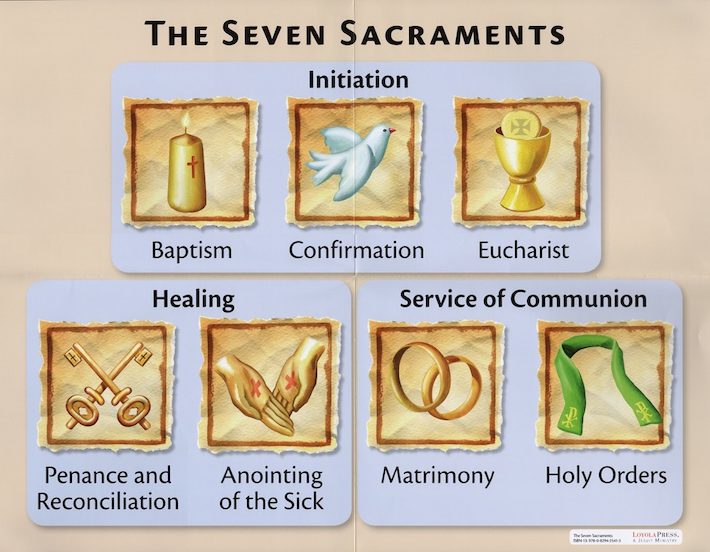
The sacraments are rituals that teach, strengthen and express faith. They are relevant to all areas and stages of life,
and Catholics believe that the love and gifts of God are given through seven sacraments, which are:
The visible reality we see in the Sacraments is their outward expression, the form they take, and the way in which
they are administered and received. The invisible reality we cannot "see" is God's grace, his gracious initiative in
redeeming us through the death and Resurrection of his Son. Our response to the grace of God's initiative is
itself a grace or gift from God by which we can imitate Christ in our daily lives.
The Roman Catholic Church has seven (7) holy sacraments that are seen as mystical channels of divine grace, instituted by Christ. Each is celebrated with a visible rite, which reflects the invisible, spiritual essence of the sacrament.
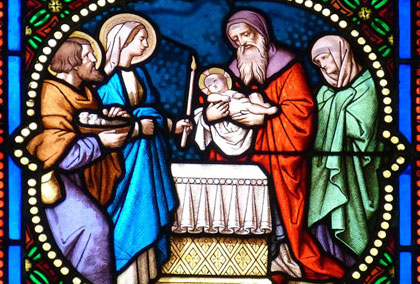
Godparents are chosen (usually friends or relatives) who will act as witnesses at the baptism and promise to
offer help and encouragement to the child in their religious development.
Catechism classes for the preparation for Baptism at St Francis Chapliancy Wukari holds every Saturdays by 4:00pm
Baptism at St Francis Chapliancy Wukari is usually done every first Saturdays of the month by 9:00am
Confirmation is the sacrament by which Catholics receive a special outpouring of the Holy Spirit. Through Confirmation, the Holy Spirit gives them the increased ability to practice their Catholic faith in every aspect of their lives and to witness Christ in every situation.
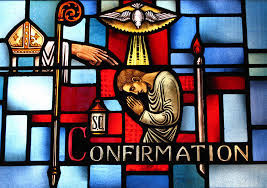
Godparents are chosen (usually friends or relatives) who will act as witnesses at the baptism and promise to
offer help and encouragement to the child in their religious development.
Confirmation, Christian rite by which admission to the church, established previously in infant baptism,
is said to be confirmed (or strengthened and established in faith).
The effects of Confirmation are as follows:
An increased portion of the gifts of the Holy Spirit: wisdom, knowledge, right judgment, understanding, courage, piety, and fear of the Lord.
A deepening and strengthening of the grace received at Baptism, which is considered the presence of God in the soul.
A more intimate relationship with Jesus Christ.
A closer bond with the Catholic Church.
The ability to take a greater, more mature role in the Church's mission of living the Christian faith daily and witnessing to Christ everywhere.
A special mark, or character, on the soul that can never be erased.
An increased portion of the gifts of the Holy Spirit: wisdom, knowledge, right judgment, understanding, courage, piety, and fear of the Lord.
A deepening and strengthening of the grace received at Baptism, which is considered the presence of God in the soul.
A more intimate relationship with Jesus Christ.
A closer bond with the Catholic Church.
The ability to take a greater, more mature role in the Church's mission of living the Christian faith daily and witnessing to Christ everywhere.
A special mark, or character, on the soul that can never be erased.
Catechism classes for the preparation for Confirmation at St Francis Chapliancy Wukari holds every Saturdays by 4:00pm
"At the Last Supper, on the night he was betrayed, our Savior instituted the Eucharistic sacrifice of his Body and Blood. This he did in order to perpetuate the sacrifice of the cross throughout the ages until he should come again, and so to entrust to his beloved Spouse, the Church, a memorial of his death and resurrection: a sacrament of love, a sign of unity, a bond of charity, a Paschal banquet 'in which Christ is consumed, the mind is filled with grace, and a pledge of future glory is given to us.'"
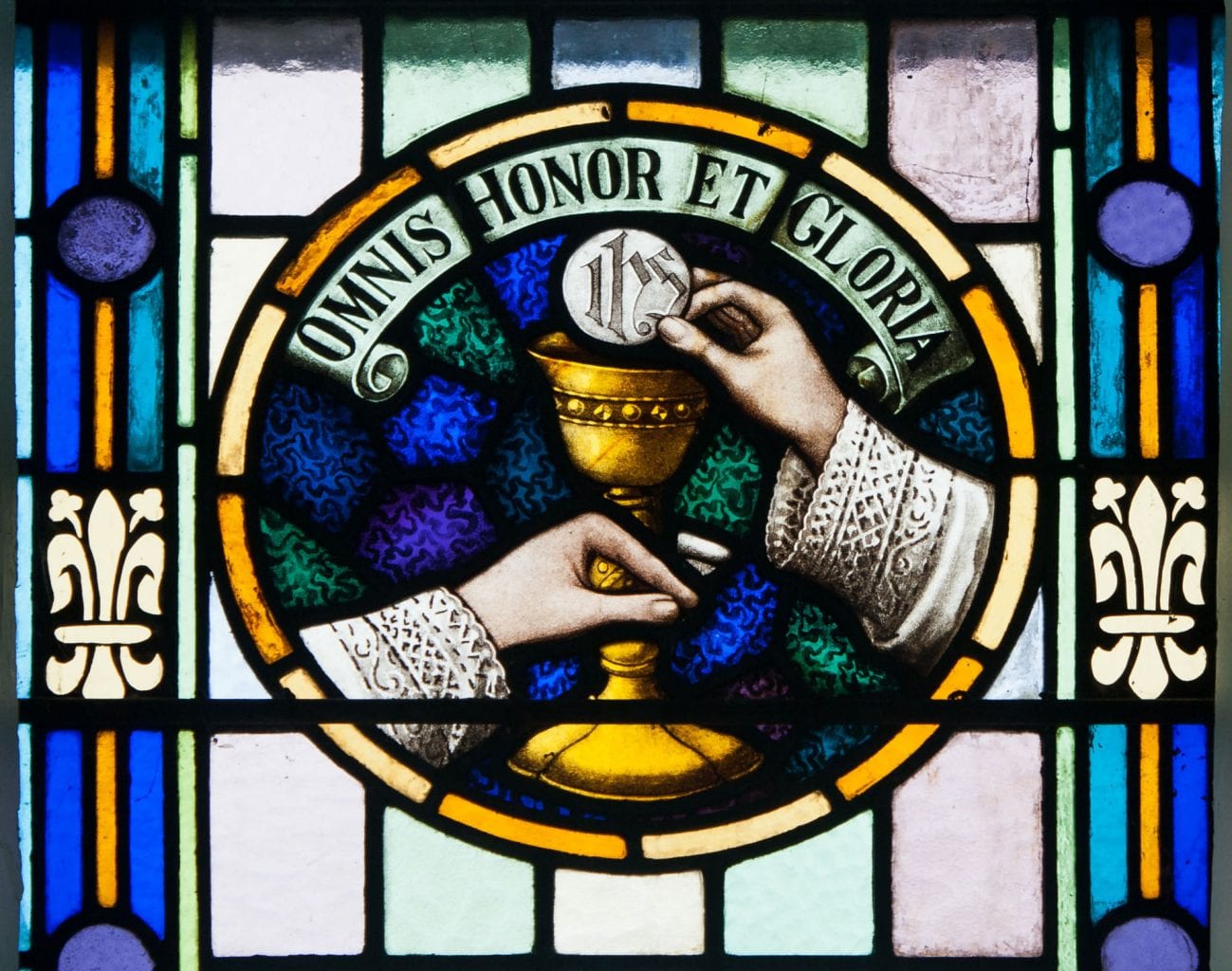
The Holy Eucharist refers to Christ’s body and blood present in the consecrated host on the altar,
the consecrated bread and wine are actually the body and blood, soul and
divinity of Christ. The presence of Christ in the Holy Eucharist isn’t just symbolic, it’s real.
The Eucharist is "the source and summit of the Christian life". When you receive Holy Communion,
you’re intimately united with Jesus Christ — he literally becomes part of you
Holy Communion increases our union with Christ and with his Church. It preserves and renews the
life of grace received at Baptism and Confirmation and makes us grow in love for our neighbor.
It strengthens us in charity, wipes away venial sins and preserves us from mortal sin in the future
Catechism classes for the preparation of the reception of your Holy Eucharist
at St Francis Chapliancy Wukari holds every Saturdays by 4:00pm
The Sacrament of Penance also called the Sacrament of Reconciliation or Confession is a sacrament of the New Law instituted by Christ in which forgiveness of sins committed after baptism is granted through the priest's absolution to those who with true sorrow confess their sins and promise to satisfy for the same.
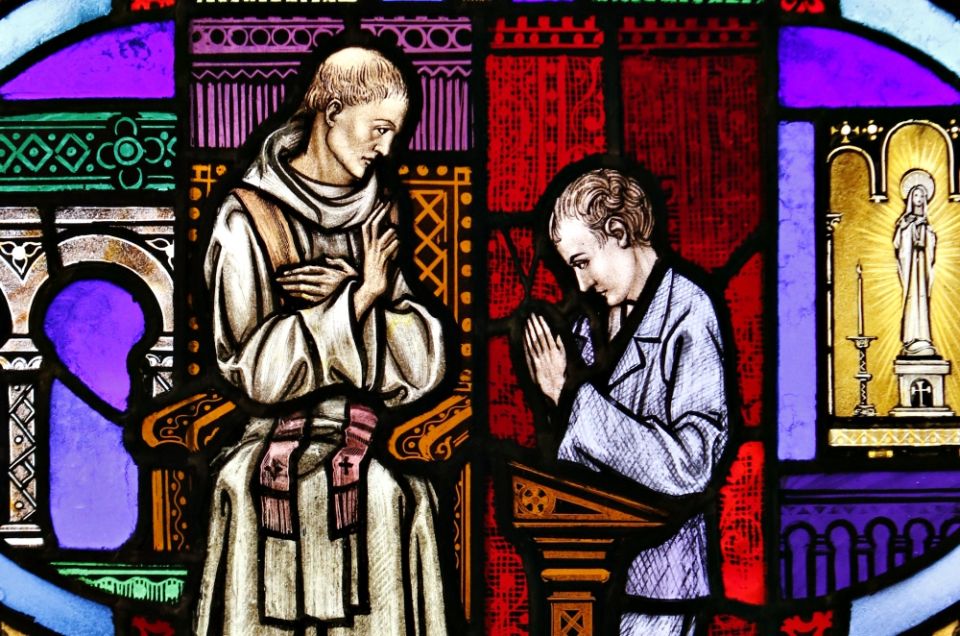
Godparents are chosen (usually friends or relatives) who will act as witnesses at the baptism and promise to offer help and encouragement to the child in their religious development.
There are four steps to reconciliation:
Contrition: Contrition is "sorrow of the soul and detestation for the sin committed,
together with the resolution not to sin again."
Confession: The confession (or disclosure) of sins, even from a simply human point of view,
frees us and facilitates our reconciliation with other
Absolution: The priest speaks the words by which “God, the Father of Mercies” reconciles a
sinner to himself through the merits of the Cross.
Satisfaction: An important part of our healing is the “penance” the priest imposes in
reparation for our sins.
The effects of the sacrament of Penance, worthily received are: the restoration of sanctifying grace;
the forgiveness of sins; the remission of the eternal punishment, if necessary, and also of part,
at least, of the temporal punishment due to our sins; the help to avoid sin in the future; the
restoration of the merits of our good works if they have been lost by mortal sin.
Confession at St Francis Chapliancy Wukari is usually done every Saturdays by 5:00pm
“Is anyone among you sick? They should call for the priests of the church, and he will pray over them and anoint the sick with oil in the name of the Lord, and the prayer of faith will save the sick person, and the Lord will raise them up. If they have committed any sins, they will be forgiven." — Letter of St. James 5:14-15
The sacrament of Anointing of the Sick, also known as Extreme Unction, is a Catholic sacrament that is administered during periods of illness - often near the time of death - in order to bring the person receiving it spiritual and physical strength.
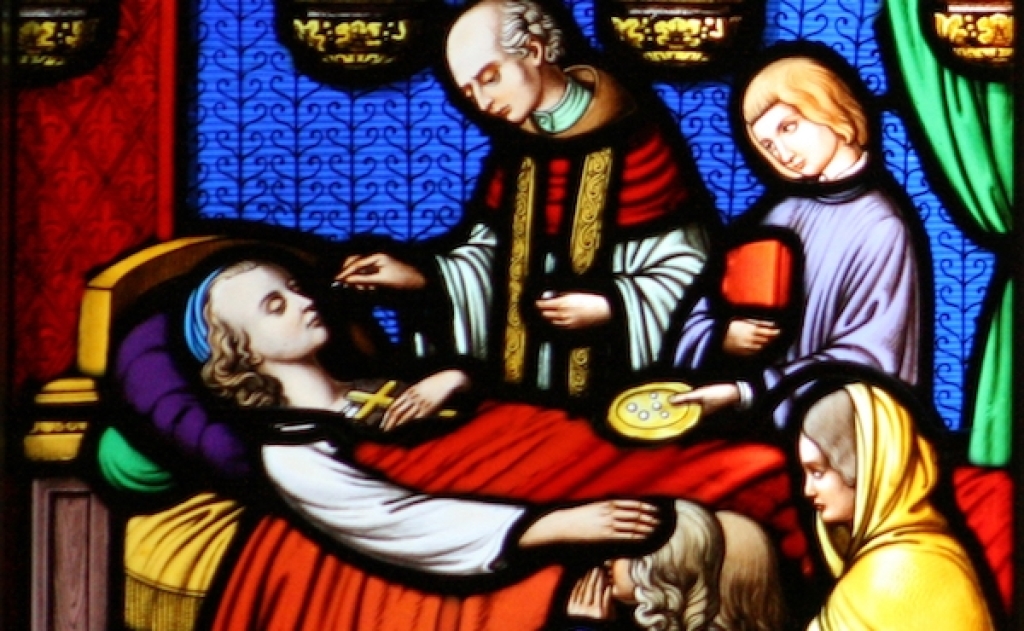
Any baptized Catholic who has reached the age of reason (usually around seven years old) can receive this
sacrament if he or she is gravely ill and in danger of death. Many Catholics also request the Anointing
of the Sick before major surgery. Elderly Catholics who are experiencing the frailty and health challenges
of old age are also welcome to receive the Anointing. The sacrament may be received more than once,
even during the same illness if it progresses in seriousness.
The sacrament is administered by a bishop or priest, who uses the oleum infirmorum ('oil of the sick'),
an olive oil or another pure plant oil blessed by a bishop, to anoint the patient's forehead and perhaps other parts of the body
while reciting certain prayers. It gives comfort, peace, courage and, if the sick person is unable to make a confession,
even forgiveness of sins.
Through the sacrament of holy orders, or ordination, a man vows to lead other Catholics by bringing them the sacraments, especially the Eucharist. He promises to do this by proclaiming the Gospel and by providing to Catholics other means to achieve holiness. In order to be ordained a priest, a man must be first ordained a deacon.
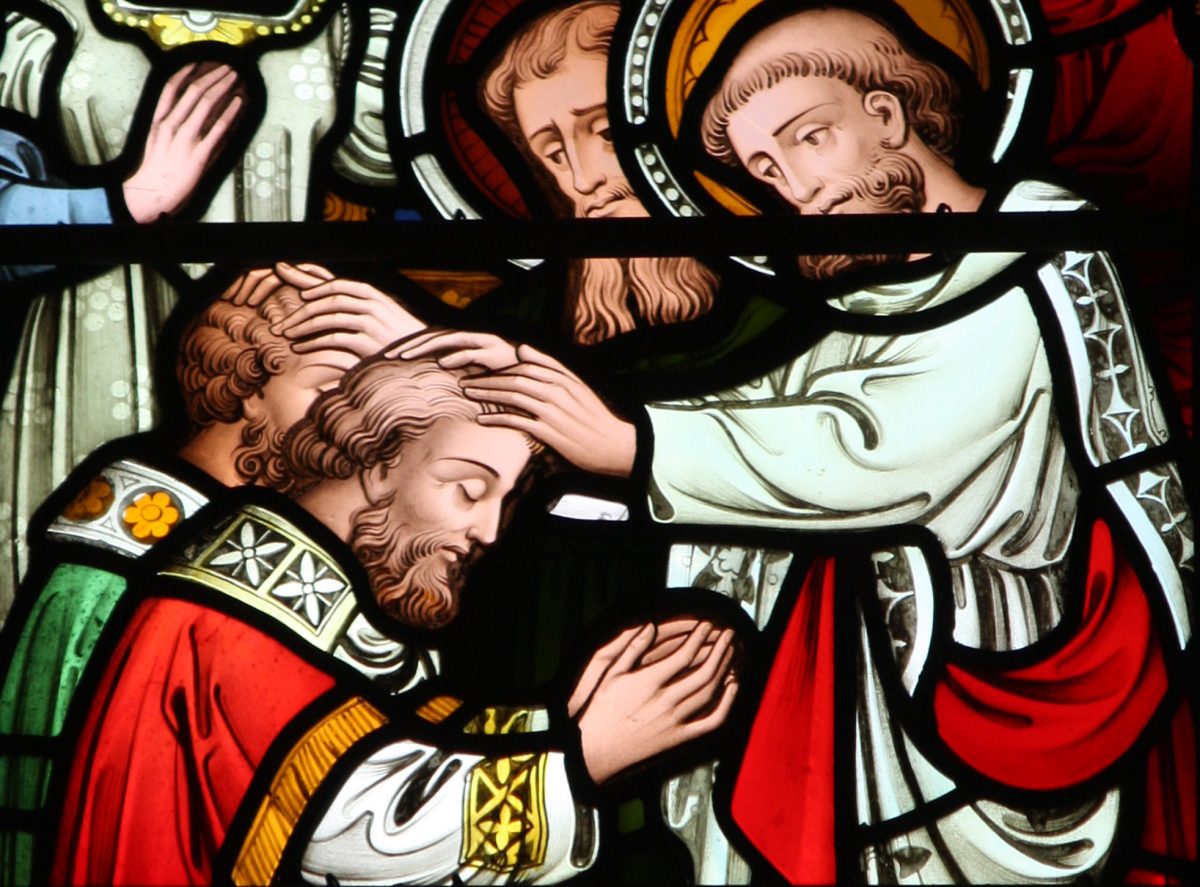
In Catholicism, holy orders is the sacrament by which men are ordained as priests or deacons. It is a sacrament
carried out by a bishop, who must lay his hands on the candidate.
Taking holy orders is a commitment for life both to God and to the Catholic Church,
as the man is given certain powers, including passing on God’s forgiveness of sins.
The three stages of Holy Orders:
Being ordained a deacon - a deacon may baptise, preach and distribute Holy Communion (but not to transubstantiate it)
Being ordained a priest - a priest is believed to have the power to change bread and wine into the Body and Blood
of Christ (transubstantiation) and to forgive sins.
Being ordained a bishop - only a bishop has the complete fullness of the priesthood, with the power to
confirm and to ordain deacons, priests and other bishops through the sacrament of Holy Orders.
The Sacrament of Marriage is a lasting commitment of a man and a woman to a lifelong partnership,
established for the good of each other and the procreation of their children.

It involves two baptized people, one or both of whom are Catholic, becoming husband and wife through
a sacred covenant with God and each other.
If the non-Catholic was baptized in a non-Catholic church, she needs documentation verifying Baptism. If she is unbaptized,
unchurched, or of a non-Christian religion, she needs to get a special dispensation from the local bishop, which the priest
or deacon performing the ceremony can obtain.
Marriage classes for the preparation for Marriage at St Francis Chapliancy Wukari holds every Sundays by 3:00pm
Wedding date and time at St Francis Chapliancy Wukari is usually fixed by the Chaplain in charge